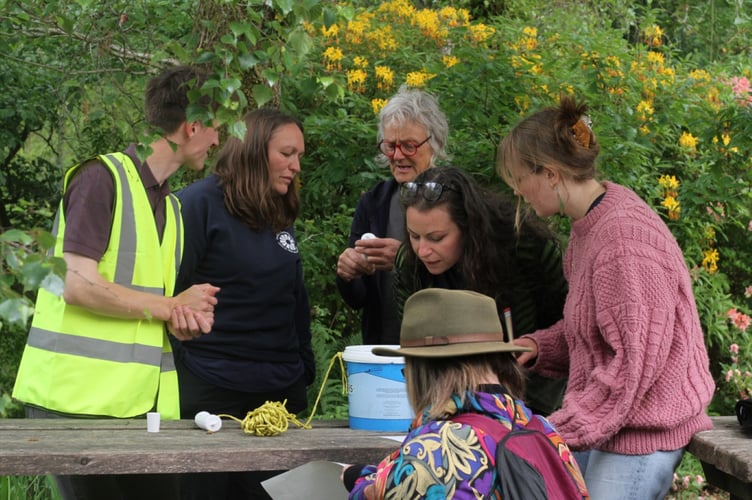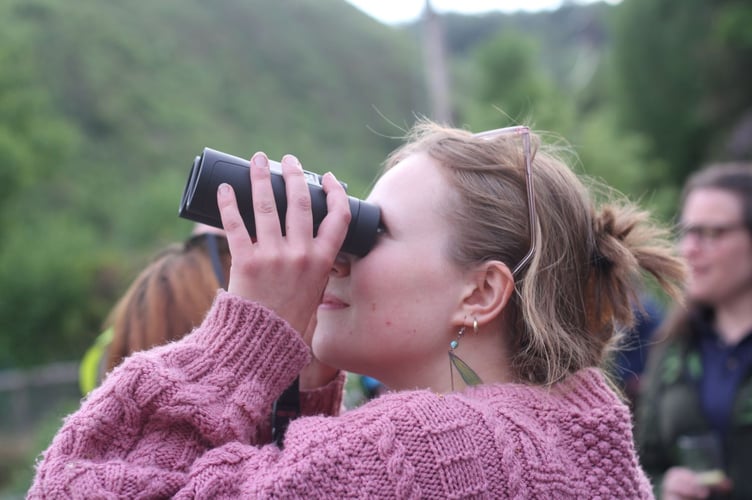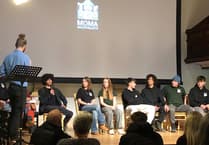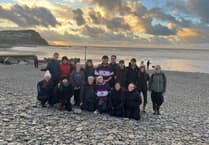Dyfi Valley citizen scientists are taking on a new study to test the relationship between water quality and swift survival.
Community groups around the Dyfi Biosphere will be regularly testing the water quality at ten points along the Afon Dyfi this summer, whilst monitoring swift numbers across the catchment.
Known for their iconic ‘scream’ that signifies summer in the British Isles, the swift population has dropped dramatically over the last 30 years - 76 per cent in Wales between 1995-2021.

Though declining in population, swifts can be spotted in villages and towns across the valley and its floodplane.
Exclusively insectivores, swifts use the Dyfi for its glut of insect life.
The Dyfi however is one of many rivers across Wales suffering from the effects of pollution with metals from historic mines and sewage flowing into its tributaries.
The group wants to understand whether the water quality is associated with the number of swifts that congregate nearby.
Ben Porter, a conservationist who has helped to train the 25+ volunteers, said: “Swifts are entirely dependent on feeding on insects during flight in a range of habitats.
“Evidence suggests river habitats are generally quite rich in invertebrates.
“Swifts nest along the Dyfi, but we don’t know how much they use the river for feeding, or if their behaviour is influenced by the health of river systems.
“We’re looking to understand if there’s a link, as swifts may be in the area for a number of reasons.
“Our river systems aren’t in a great state across Wales at the moment, but if there is a reliance by swifts on rivers then there’s a mandate to look at how we can ensure the Dyfi is a healthy system for those birds.”

Experts aren’t sure exactly why the swift population has declined so dramatically - many point to the loss of nesting sites, typically in the eaves of houses and churches.
New housing designs and redevelopments have closed up these gaps.
Another reason likely to contribute is the decline of insect populations - 33 per cent of all insects worldwide are currently at risk of extinction.
The project will involve different voluntary community groups including Dyfi Swifts (responsible for installing swift boxes across the Valley), led by Biosffer Dyfi/ Dyfi Biosphere.
The volunteers were taught by Ben Porter and Jenny Lampard from Lab Dŵr Dyffryn Dyfi in swift behaviour and water testing during a session at the Centre for Alternative Technology (CAT) on 20 May.
Commenting on the project dubbed ‘Screams and Streams’, James Cass from Dyfi Biosphere said: “Screams and Streams aims to bridge the gap between academic research, communities and policy makers.
“We are pleased to be working with groups from the community, and building new relationships between Lab Dŵr Dyffryn Dyfi and Dyfi Swifts, as well as the New Dovey Fishery Association.”
The project is funded by the Local Policy Innovation Partnerships and supported by academic mentors at Aberystwyth and Cardiff universities.
To join the project as a volunteer email Bryn at [email protected]





Comments
This article has no comments yet. Be the first to leave a comment.